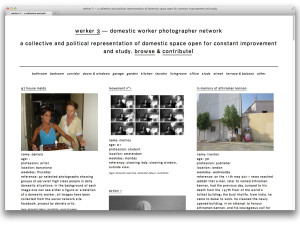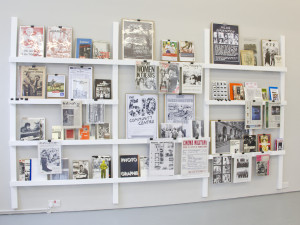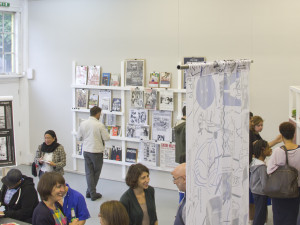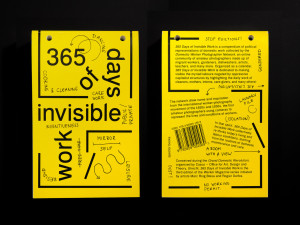Werker 10: Community Darkroom and Christian Nyampeta: How to Live Together – Prototypes
–
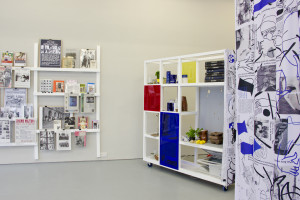
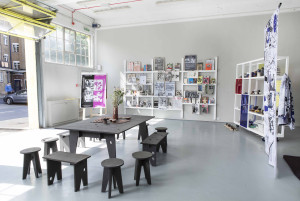

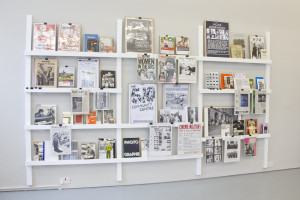
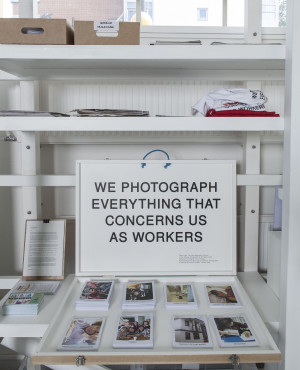
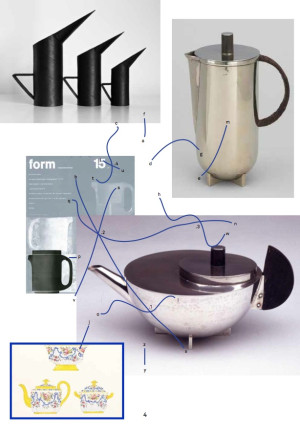
During July and August 2014 the gallery space presents two of this year’s Communal Knowledge projects alongside each other: Werker’s Community Darkroom and Christian Nyampeta’s How to Live Together: Prototypes.
For How to Live Together: Prototypes Nyampeta is working with local residents, schoolchildren and education services to rethink the design of everyday objects to produce new tools, settings and structures. These new Prototypes could be a community noticeboard, a teapot, toys, sandals, notebooks or a musical instrument. Their reconfiguration, through collaborative processes of discussion, experimentation and making, act both as a way of developing new relationships between artists, communities and surrounding resources and to prompt new behaviours in these people through the adapted usage of these objects. The project is in process as a temporary workshop in the gallery space throughout the summer.
Alongside Nyampeta’s workshop, for the tenth issue of their magazine, Werker present photographs and information stored and displayed for use in the gallery space. The title of the project takes its name from the North Paddington Community Darkroom (NPCD), local to The Showroom, which played a key role in the community photography movement of the 1970s. Acting not in the interests of nostalgia, but in order to explore the possibilities of social photography within a contemporary context, Werker have been collaborating with local groups to explore how photography can portray and analyse issues of invisible labour. Domestic, unpaid and volunteer work are just some of the forms of labour recorded or depicted by the subjects themselves. The act of self-representation not only empowers the subject, it makes the invisible visible, and serves as a resistance to dominant representations in the media. The project continues to evolve throughout the summer as visitors are invited to select photographs, as part of an editing process, to be assembled for different outputs such as campaign t-shirts and fanzines.
Collaborators include:
Werker 10: Community Darkroom: Justice for Domestic Workers, The Migrants Resource Centre, City of Westminster College, 60 Penfold Hub, The Independent Workers Union of Great Britain (IWGB), North Paddington Community Darkroom, Action Factory Community Arts, Terry Dennett and The Jo Spence Memorial Archive and Ismail Ali.
Christian Nyampeta: How to Live Together: Prototypes: Ada Court, Westminster Adult Education Service, Fourth Feathers Youth Club, The Marylebone Project, Abdullah Khan, Mohaned Adam, Rawan Jamal Wadi, Rena Kisserwan, Mussadag Shash, Rawan Wadi, Ihab Abdulkader, Ayad Mohamed, Sara Abdulkader, Talal Al-Enazy, Sara Murad, Mounir Zriek, Tanzila Begum, Manar Majed, Kate Wright and Helen Kolowole from King Solomon Academy, Claire Sharpe, Muna and Leyan Goraush, Ramzy, Alhusein, Gassan and Rayyaan El- Hurraiby, Mahwash, Caala Santano, Nevein Ezz El-Din, Farrah and Ahmed Hasaan.
Communal Knowledge is generously supported by Paul Hamlyn Foundation, City Bridge Trust, the City of London Corporation’s Charity, John Lyon’s Charity, Esmée Fairbairn Foundation, Arts Council England and The Showroom Supporters. Werker 10 – Community Darkroom has been additionally supported by Mondriaan Foundation Scheme.
